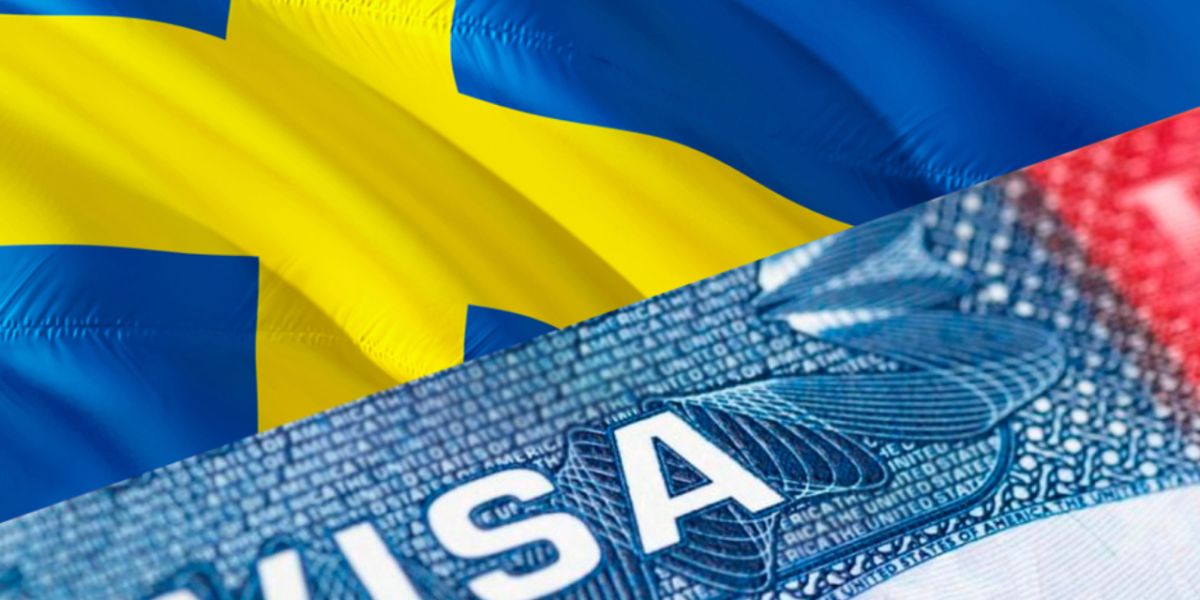
If you are planning to move to Sweden, you should know beforehand whether or not you will need a visa. EU/EFTA nationals are exempt from visa requirements and temporary residence permits, while others require a visa to enter Sweden and a residence permit to stay for more than 90 days.

For EU and Nordic nationals
If you're an EU national or a Nordic national (Finland, Denmark, Norway, Iceland, Greenland and Faroe Islands), you have both the right to enter Sweden without a visa and stay to work, study, or start your own private business. This is called 'right of residence' and it exempts you from having to contact the Swedish Migration Agency and apply for a residence permit. Note though that, in order to be considered as having the right of residence in Sweden, you need to either have a job, be self-employed, be a student at recognized Swedish University, or have sufficient means to support yourself ' you cannot apply for any kind of loan or government benefit.
Having right of residence means you can start working or studying right away in Sweden. However, in order to get a Swedish ID and have access to welfare services, you'll have to eventually register to the Swedish Tax Agency ' Nordic nationals are encouraged to do so as well. How soon after your arrival you should do that, as well as the documentation and process, varies depending on your circumstances.
Good to know:
If you have family members joining you in Sweden who are not EU nationals, they will need to apply for a residence card. You will then have to demonstrate that you meet the requirements to be in Sweden.
Useful link:
Migrationsverket - EU citizens
For Swiss citizens
Sweden has a similar agreement in place with Switzerland, which allows Swiss citizens to enjoy almost all the benefits of an EU national. As a Swiss citizen, you can begin to work, study or start your own business right away in Sweden, however, if you plan on staying for more than 3 months you will have to apply for a residence permit. You can apply online using a specific form, and the application is free of charge.
For third-country nationals
In all other cases, you will probably have to apply for a visa to enter Sweden. The type of visa you will need will depend on the purpose of your visit (visiting relatives or friends, business or conferences, sports events, cultural exchanges, tourism etc) and it will be valid for up to 90 days. You need to apply for it through the Swedish embassy or consulate back in your home country. The documents vary depending on the purpose of your visit, but in general, you should account for the following:
- a duly filled and signed Schengen visa form (this form should be filled for minors travelling alone or in the company of an adult)
- your passport (which should be valid for at least three months following your departure from the Schengen area and have at least two blank pages)
- photocopies of your passport's first pages, as well as former Schengen and other visa stamps
- an identity photo (taken from the front at least six months beforehand, 3.5 cm x 4 cm)
- an individual health insurance providing coverage for emergency health care and repatriation for medical reasons
- sufficient funds for the whole duration of your stay in Sweden (a minimum of 450 SEK, that is around 45 euros per day and per person). You may have to pay less if you have already settled your accommodation fees in advance or if you are staying at a friend's or relative's place
- your bank statements or six latest payslips. If you have been invited to Sweden, your host will have to produce proof of sufficient funds to support you during your stay.
Good to know:
If you intend to stay more than 90 days, you will have to either extend your visa (D-type visas are granted for health reasons or incidents beyond your control) or apply for a residence card at the Migrationsverket.
Useful link:
We do our best to provide accurate and up to date information. However, if you have noticed any inaccuracies in this article, please let us know in the comments section below.








